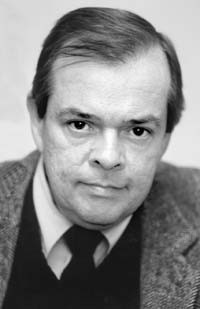On July 18 Reporters Without Borders (Reporters sans frontieres), a Paris-based internationally respected organization dedicated with defending freedom of the press, issued a press release on a law passed by Verkhovna Rada on July 9. This, now awaiting President Kuchma’s signature, would authorize Ukraine’s intelligence services to arrest journalists, raid their homes, and conduct body searches on them if they are suspected of wanting to reveal official secrets without clearly defining what those secrets are. This, in the organization’s view, would spell the death of investigative journalism in this country. Earlier, on July 16, the Organization for Security and Cooperation in Europe’s Media Freedom representative, Freimut Duve, sent a letter to Ukraine’s Foreign Ministry, denouncing the same bill. The European Union has also warned Ukraine that strengthening media freedoms, not restricting them, was one of the main criteria by which Ukraine’s requests for deeper integration with the E.U. would be judged. All this means that the world is watching what is happening with the freedom of the press in Ukraine and does not like what it sees.
Of course, every state has legitimate secrets that have to be maintained in order not to compromise the national security. Every state has disagreements over the line between what people really cannot be allowed to know and what it is merely inconvenient for those in power to allow them to know. When during the Vietnam War, the New York Times obtained a secret history of that war, the administration of then President Nixon demanded it not be printed. The New York Times took the case to the Supreme Court and won, which allowed The Pentagon Papers to be published and become a best seller. Great Britain is now going through a crisis over an intelligence analyst who went the BBC and talked about the flaws in his country’s intelligence that led to the intervention in Iraq that did not find what it was supposed to.
Such conflicts happen in all countries, but representative self-government as practiced in Western Europe and North America simply will not work without transparency, which means that the people’s right to know can be limited only when there are clear and compelling reasons to show that such limitations are necessary. Drawing the line between legitimate secrecy required by national security and the people’s right to know is everywhere and always devilishly difficult to do. In the postcommunist states, which are still struggling to overcome the legacy of opacity and corruption endemic in the communist old regime and where the idea of conflict of interests, that is, the notion that public officials cannot use their official powers to promote their private interests, simply doesn’t exist such proposals as the one just passed by Ukraine’s parliament are certain to set off alarms in the West.
Willingness to defy the opinion of those with whom one is supposed to be seeking integration, and this is precisely what seems to be happening here, raises an obvious question: what is the national interest and what is private interest masquerading as such? Until Ukraine’s authorities indicate its willingness to take into account Western criticism, especially in an area so sensitive as the freedom of expression, Euro-Atlantic integration will simply not occur.







